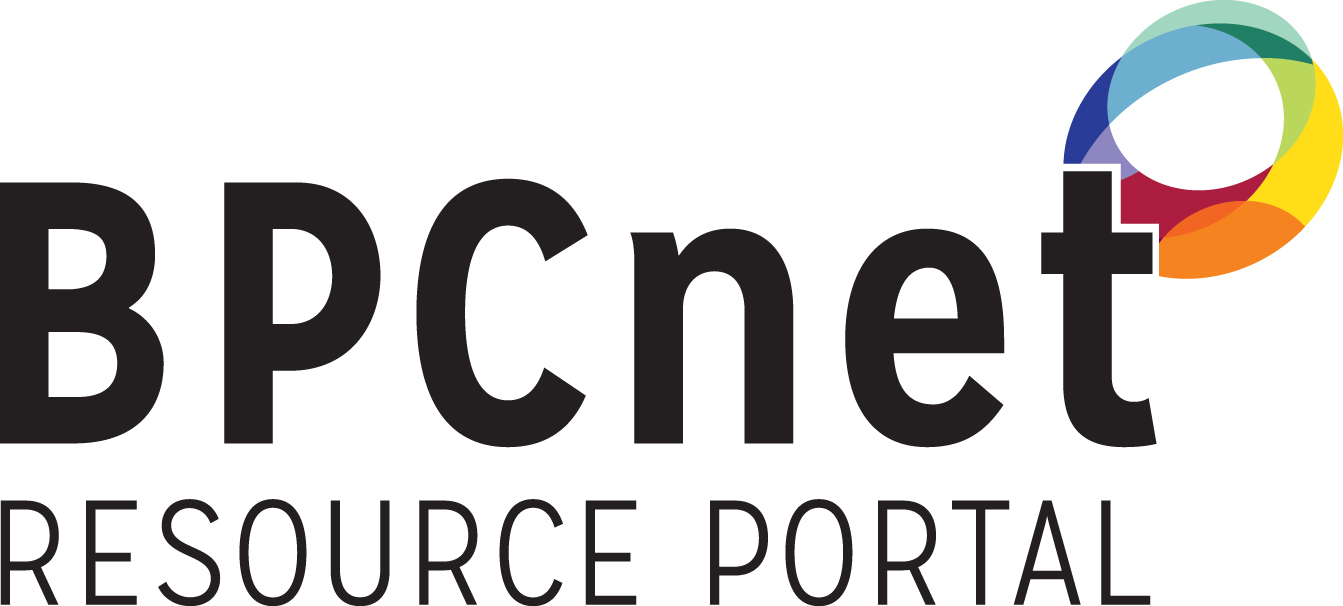Expanding the Pipeline: The Context, Importance, and Experience of Writing Departmental BPC Plans
 Broadening participation should be one of the higher priorities in all computing programs in the US. Efforts to increase participation from minoritized communities has been going on in earnest for over a decade. Unfortunately, we have yet to expand the group of faculty and staff engaged in these activities and have only made a marginal difference in who is studying computing. In this article, we will focus on BPC Plans as an attempt to supplement and scale-up the computing community’s efforts to address the issue of lack of diversity in computing.
Broadening participation should be one of the higher priorities in all computing programs in the US. Efforts to increase participation from minoritized communities has been going on in earnest for over a decade. Unfortunately, we have yet to expand the group of faculty and staff engaged in these activities and have only made a marginal difference in who is studying computing. In this article, we will focus on BPC Plans as an attempt to supplement and scale-up the computing community’s efforts to address the issue of lack of diversity in computing.
This article will describe what BPC Plans are; outline the background/context of the BPC Plan initiative; identify why BPC Plans are important; provide an overview of BPC Plan development from the perspective of a department that has developed a verified Departmental BPC Plan (Emory University Department of Computer Science); and conclude with some pointers to resources for getting started with your Departmental BPC Plan.
The NSF CISE BPC Plan initiative
In July of 2018, the NSF Directorate for Computer and Information Science and Engineering (CISE) began a pilot initiative to include Broadening Participation in Computing (BPC) efforts as an accepted and expected part of medium and large CISE research award portfolios. At its core, this initiative seeks to help the field of computing make full use of the talents of our diverse nation by scaling up broadening participation efforts and to engage a larger portion of the computing community in these efforts.
This initiative required proposals submitted to certain CISE programs to have an approved BPC Plan (Project BPC Plan) at the time of award. The Project BPC Plans describe actions that each of the PIs in a project will take to contribute to BPC. These do not need to be integrated into the technical part of the proposal and are not expected to be novel. The PIs are encouraged to benefit from existing BPC efforts and, when possible, connect with organizations that are already engaged in these efforts. Currently, Project BPC Plans are required to be included as supplemental materials for each proposal submitted to the relevant programs in the CISE Directorate.
An evolution of the BPC Plan initiative included the introduction of Departmental BPC Plans to offer a range of institutional programs and activities that can be used by faculty to develop their Project Plans. Departmental plans are developed at the departmental level and submitted to BPCnet.org, a resource clearinghouse funded by the NSF. The Departmental Plans include BPC related activities that a department is already implementing in or plans to implement in. Faculty can identify activities within their department to engage with and describe how they will do that in their Project BPC Plan.
At a higher level, the Departmental BPC Plans demonstrate to the community a deep and ongoing commitment to equity and inclusion. The practical benefit of developing a Departmental Plan is that it provides a resource for the faculty to create meaningful Project BPC Plans. Creating these Project Plans will then potentially expand the number of faculty engaging in broadening participation in a meaningful way. Further, Departmental BPC Plans can also serve as models for other institutions to create their own plans.
A range of resources were developed leveraging the existing BPC efforts and expertise, and with support from the NSF in order to assist departments and faculty writing BPC Plans. In doing so, these resources support the community’s efforts to broaden participation in computing. BPCnet.org was created in 2019 as a clearinghouse for resources on BPC. The same year, a workshop on Departmental BPC Plans was held at the University of Illinois, Urbana-Champaign. In 2020, an additional Workshop Series project started with three virtual workshops organized by CRA and will continue with another in-person workshop on August 4-5, 2022. BPCnet.org also provides a BPC Consultancy service which is made available to the computing faculty to have one-on-one consultations with BPC experts at no cost thanks to funding from the NSF.

Why is it important to have a Departmental BPC Plan?
The NSF effort to encourage the development of Departmental Plans seeks to help departments state their goals, actions and assessment metrics in a structured way, to address their BPC priorities. The effort does so by providing support, in the form of templates, examples, and consultants, so that departments are not in a void considering “how do I tackle this challenge?” Having a plan, in addition, can help sustain the effort by considering activities beyond the “one and done” that often plague broadening participation efforts. Activities organized and planned at the department level can be strategically selected and coordinated, thus increasing the chances of success to reach out and encourage participation from the marginalized communities currently not engaging in computing.
Furthermore, having a plan makes it easy for faculty, researchers, and staff to decide how to engage in BPC efforts. In our experience, most people want to help, but not all are comfortable or knowledgeable about how to engage. Many are worried they will do more harm than good by working with populations they are not familiar with. Having a series of activities, organized, planned, and vetted in a departmental plan serves as a “menu of options” from which personnel (faculty and staff) can select a level of participation with which they are comfortable. This, presumably, will increase engagement at the departmental level and will expand the number of people working on BPC. This will remove the burden from those minoritized faculty members doing all of the service work for BPC.
Overall, it is essential to have a solid BPC Departmental plan as a guiding, and living, document for how to expand the reach of computing to those communities that have traditionally been excluded.
What does it take to write a Departmental BPC Plan?
The faculty at the Emory University Department of Computer Science, probably not unlike many or most others, comprised a handful (or fewer) of individuals with significant experiences with BPC activities. However, the majority among all the faculty in the department were interested in BPC and likely to engage or participate if there were ongoing BPC initiatives that could be leveraged. A Departmental BPC Plan was an excellent instrument to organize and enhance existing BPC efforts as well as bootstrap new ones. The faculty members who were already involved in broadening participation also viewed a Departmental BPC Plan as an instrument that could motivate and facilitate broader participation among the faculty in appropriate efforts.

Three members of the CS department at Emory University attended the 2019 Departmental BPC Plan Workshop at the University of Illinois, Urbana-Champaign. This workshop was instrumental in the development of the CS Department’s BPC Plan. Pre-workshop activities pushed participants to research and become very familiar with the BPC-related activities in their department, college or school and the university at large. It can be worthwhile to even be familiar with regional activities, for example, at other schools in the city or state.
It is also important that the attending participants are empowered to make critical decisions around the Departmental Plan. For these reasons, the workshop required a department chair (or similar) be a part of the team. However, other faculty can be similarly empowered by a priori department buy-in and endorsement. Most attending departments left the workshop with a complete or near complete draft of a full Departmental BPC plan. After the workshop, BPCnet.org consultants helped refine the CS Department’s initial draft into a final Departmental BPC Plan which was then verified by BPCnet.org.
The obvious benefit of having a Departmental BPC Plan is that it facilitates the development of Project BPC Plans. Additionally, a Departmental BPC Plan helps faculty members to learn about new BPC-relevant campus activities and organizations that they are incorporating into their BPC practices as well as pursuing new BPC collaborations.
Getting started with your Departmental BPC Plan
While writing a BPC Plan might seem like a daunting task, with all the resources and support currently available, the process is fairly streamlined and simply requires some commitment from the departments. As evident by the Emory University CS Department’s experience, developing a Departmental BPC Plan begins with some pre-work of gathering information and identifying the goals and activities appropriate for your department. Reviewing resources on BPCnet.org, attending BPC Plan writing workshops, and connecting with a BPC Consultant can help facilitate this process. Putting your Plan in writing is also made simple using templates and checklists available on BPCnet.org. BPC Consultants are available throughout this process to review drafts and have virtual consultations with you to help you navigate the writing process with ease. Once you have a complete draft of your Departmental BPC Plan, BPCnet.org BPC Consultants will review and verify your Plan, which will indicate that your Plan meets the criteria for a meaningful Departmental BPC Plan and enable faculty in your department to submit it with their Project BPC Plans when applicable. Verified Departmental BPC Plans are published on BPCnet.org to serve as examples for other departments and demonstrate each department’s commitment to broaden participation in computing.
Finally, it is important to note that implementation of BPC Plans (both Departmental and Project) is critical to the success of this initiative. Development of BPC Plans no doubt creates awareness of BPC among the faculty when they are involved in the process or are aware of their department’s BPC Plan. However, the real contribution to BPC occurs when both departments and faculty commit to implementing the activities outlined in their BPC Plans. This is incentivized by a requirement to revise Departmental BPC Plans every two years and reporting of progress in Project BPC Plans in annual reports to NSF.
Selected resources on BPCnet.org
- Overview of BPC Plans: Review of the types of BPC Plans and links to relevant pages on BPCnet.org
- Departmental Plans: More details on Departmental BPC Plans including checklists and templates
- Project BPC Plans: More details on Project BPC Plans
- Connected Project BPC Plans and Standalone Project BPC Plans: Checklists and templates
- BPC Plan Consultancy: Scheduling to connect with a BPC expert for support in writing your Departmental and Project BPC Plan
- org Statistics and Data Hub: Statistics and data tailored to the computing community’s needs for easy access
- Customizing your BPC Plan: Curated resources on various topics to help you create a meaningful BPC Plan that can rely on evidence-based knowledge and expertise on BPC.
- org FAQ: Frequently asked questions about BPC Plans including references to the official NSF FAQ
- BPC Plan submission form: Submit your Departmental BPC Plan for verification by BPCnet.org
- News and events: Announcements of future BPCnet.org events and resources from past events
- BPC Community Calendar: Events and deadlines from the BPC community
- BPCnet Bulletin: BPCnet.org blog
- BPCnet.org mailing list: Sign-up for important announcements and a monthly overview of BPC related content
About the authors
Dorian Arnold
Dorian Arnold is a tenured, associate professor of Computer Science at Emory University. His technical interests are in large scale distributed systems, fault-tolerance and software tools for high-performance computing environments. Some highlights of his many BPC-related efforts include serving as General Chair of the 2017 Richard Tapia Celebration of Diversity in Computing and chairing the 2017 Pipeline Workshop in Diversity in HPC.
Manuel A. Pérez-Quiñones
Manuel A. Pérez-Quiñones is a Professor of Software and Information Systems at the University of North Carolina at Charlotte. He is an ACM Distinguished Member and for his efforts to diversify computing has been recognized with the 2017 Richard A. Tapia award, and the 2018 CRA Nico A. Habermann award.
Michelle L. Rogers
Michelle L. Rogers is a Program Officer at the National Science Foundation in the Computing and Networking Systems (CNS) Division of the Directorate for Computer and Information Science and Engineering (CISE). There, she is working on broadening participation efforts with the Education and Workforce (EWF) working group. In addition, she is an Associate Professor in the College of Computing and Informatics at Drexel University.
Burçin Tamer
Burçin Tamer is the Director of the Center for Evaluating the Research Pipeline (CERP) at the Computing Research Association (CRA). She leads a number of projects that collect data, conduct research and evaluation, and engage with the computing community to support the community’s efforts to broaden participation in computing.
Summary
Efforts to increase participation from minoritized communities has been going on in earnest for over a decade. Unfortunately, we have yet to expand the group of faculty and staff engaged in these activities and have only made a marginal difference in who is studying computing. This article discusses BPC Plans as an attempt to supplement and scale-up the computing community’s efforts to address the issue of lack of diversity in computing.









